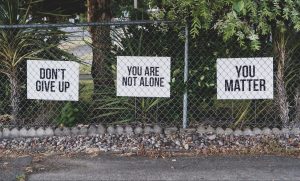
World Suicide Prevention Day raises awareness of mental health issues and some of the consequences of untreated disorders. Oftentimes, these mental health issues intersect with criminal defense. After practicing law in Montgomery County, Texas for almost 11 years I have identified certain fact patterns where mental illness reveals itself. This can be seen in drug, assault and other cases. While there are certain similarities in cases where underlying mental health issues exist, each person and condition is unique in their own right. Mental health is a complex and nuanced topic that requires much more attention than one blog post. This is just one effort in honor of World Suicide Prevention Day.
If you’re arrested for a criminal offense, that does not mean that you’re a bad person. Innocent until proven guilty, right? Exactly. Outside of the pillars of the Constitution, the law, your individual rights, and the presumption of innocence this is even more true for someone suffering from a mental illness. I see this in drug cases when people are suffering from what is diagnosed by a qualified professional as bipolar disorder, depression, anxiety, schizophrenia, etc. who simply just want to feel better; they want the pain to stop. I see this in assault cases where the person is in crisis and not typically a violent person, but can’t process through conflict or control their emotions. Many cases that come across my desk lack criminal intent, but contain an unmistakable element of untreated mental health conditions.
Overall our system is lacking for those who suffer with mental health issues. However, in the cases where my client lacks criminal intent or simply needs help, I work with some local resources such as diversion courts, DWI and Drug Court, Mental Health Court Services and other local mental health professionals to find a plan to meet their needs and in the right situations – resolve their case.